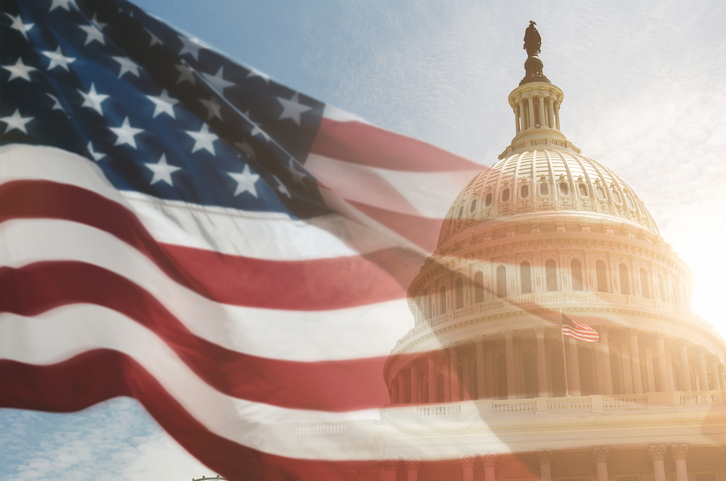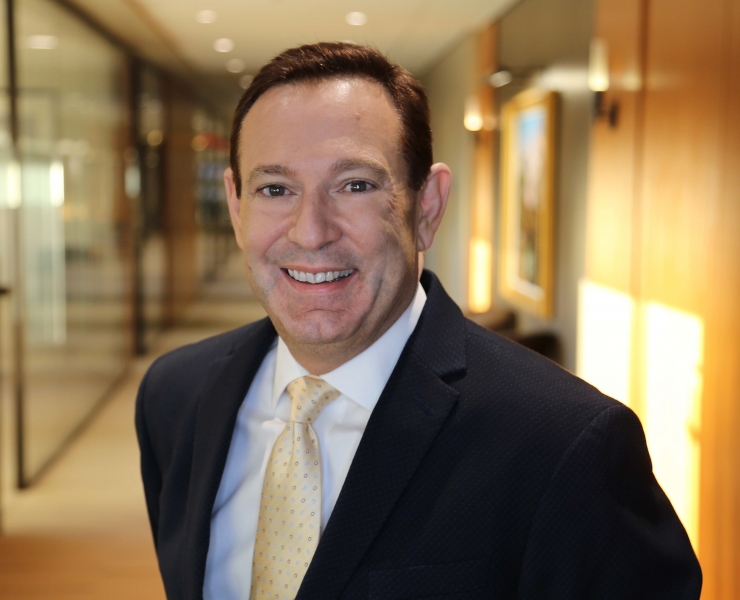With political, policy and funding uncertainty – and mounting pressures on the US healthcare system to deliver improved outcomes and reduce costs – all stakeholders and contributors are facing significant challenges.
The pharmaceutical industry, a key part of the healthcare ecosystem, is no exception. Old policies are being re-examined top to bottom, and it would be wise to anticipate substantial policy changes, says John Bardi, Vice President, Public Affairs Advocacy & Digital Medicines Business Development at Otsuka America Pharmaceutical, Inc. (OAPI).
It is time to rethink our approach to public policy as the industry continues to lose ground in the current debate, which assails the industry’s reputation and fans populist rhetoric, threatening the industry’s traditional free business model, he adds.
Bardi is mindful that uncertainty can create unanticipated consequences that could impede the pharmaceutical industry’s purpose – to bring hope, through safe and effective medicines, to those suffering from tragic and debilitating diseases.
A self-proclaimed “watchdog” of the US healthcare ecosystem, Bardi has spent more than 20 years in pharma, in addition to a previous ten-year run in the hospital industry. He is a “healthcare guy” who finds sport in assessing the dynamics of the healthcare ecosystem, including adapting and responding to new stimuli.
“When government, consumer attitudes and science create, respectively, new regulations, new demands, and new technologies, medical breakthroughs and drug innovations, stakeholders in the healthcare ecosystem move quickly to adapt, adjust and accommodate in order to advance business opportunities, and protect against risks,” says Bardi.
From the DRG (diagnosis-related group) Prospective Payment System in the 80s and the Medicare Part D program in the 2000s, to the ongoing Age Wave and the drug therapies and medical breakthroughs that ushered in the move from inpatient to outpatient care (and nursing home care to assisted living), the passage of the Affordable Care Act under Obama was just another ‘stimulus event’ like the others that preceded it, contends Bardi.
True to form, stakeholders in the healthcare ecosystem responded, adapted and created new approaches and business models, he says. Insurers created coverage models to support the healthcare exchanges, most states expanded their Medicaid programs, significant numbers of uninsured consumers signed up for coverage, and the pharmaceutical industry sought ways to offset the costs imposed on it through new taxes referred to as PhRMA fee (to name just a few ecosystem stakeholder responses to new ACA environment).
Unfortunately, unlike past healthcare ecosystem stimuli events, post-stimulus stabilization has not occurred, and the ecosystem remains unsettled. Current legislative proposals regarding the future of the ACA – whether to repeal and replace, or just repeal and start anew – are examples of this continuing lack of stability.
Politics is getting in the way of good policy, says Bardi. “We’re sitting at the precipice of a ‘new stimulus’ action by our federal and state governments, a new jolt to the healthcare ecosystem. We are waiting for something new to emerge from the attempts to reconcile the two current legislative proposals, the House’s American Health Care Act and the Senate’s Better Care Reconciliation Act.
“And apropos of a process severely impacted and hobbled by political rhetoric, the White House policy team sends populist messages seemingly without consideration of the implications those messages have for the wide range of ecosystem stakeholders, creating a tremendous amount of business uncertainty and distraction,” he says.
Proposed plans to curb health spending and Medicaid funding are raising fears that patients will lose out on cutting-edge therapies, or even basic insurance coverage. The American Cancer Society Action Network is just one organization that has spoken about the Senate’s proposed health bill, saying it would leave cancer patients without access to life-saving but expensive treatments. The Mental Health Advocacy community has also emphasized the importance of retaining mental health benefits as a top priority in the healthcare exchanges and Medicaid programs.
“The ‘game’ is afoot, as it has been before, and the pharmaceutical industry needs to vehemently protect its ability to succeed in the critical role of advancing the science of drug discovery,” says Bardi. “Our breakthrough therapies have and will continue to be part of the ‘ongoing stimuli’ impacting not only the lives of patients but the cost-effectiveness and efficiencies of the US healthcare ecosystem. Game-changing science, and valuable, safe and effective therapies are our tools; hope is our passion, and cures remain our relentless ambition.”
He remains optimistic despite the current uncertainty, believing that all stakeholders share a collaborative purpose centered around the health and well-being of every American. Yes, healthcare in this country is a big business and as such, politics and policy will get ugly at time but it’s these debates, as uncomfortable and unsettling as they may be when still unresolved, that force us to rethink our approaches and strategies, and to adapt, adjust and succeed in an ecosystem that will forever be evolving.
Related Content: What the FDA Really Thinks About Real-World EvidenceWhen the Machines Take OverSeeing the Larger Picture on Patient RiskArbiter of ValueWorking in Sync Précis: Despite many bumps in the road and a lack of clear direction, the US healthcare ecosystem always finds a way to deliver its goal – improving the health and well-being of every AmericanPremium`: Freemium`: Channels: Access and EvidenceOriginal Article
Précis: Despite many bumps in the road and a lack of clear direction, the US healthcare ecosystem always finds a way to deliver its goal – improving the health and well-being of every AmericanPremium`: Freemium`: Channels: Access and EvidenceOriginal Article


